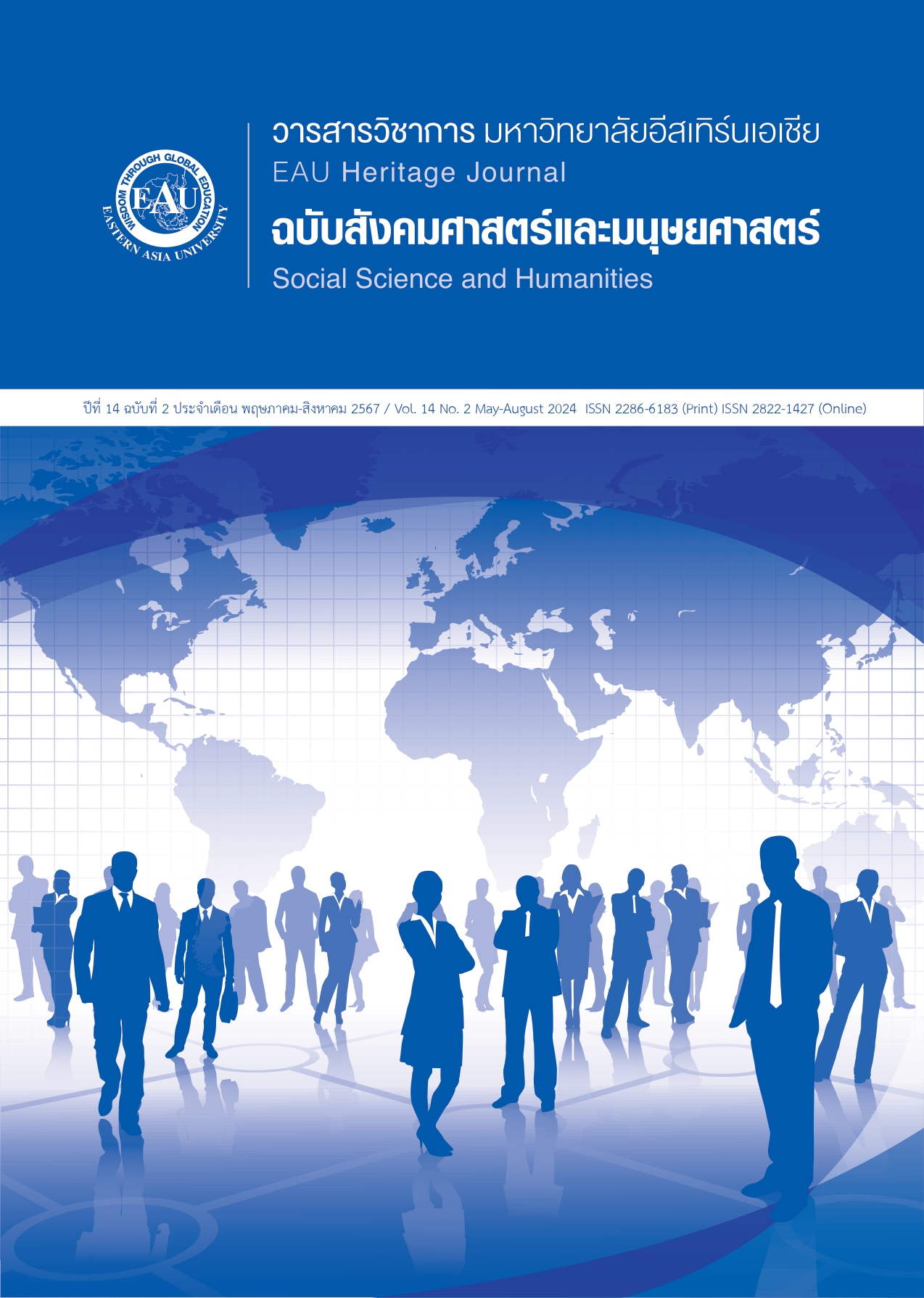Key Success Factors for Driving Sustainable Local Economy by Adding Value to Local Products
Keywords:
Community product, Local product, Value adding, Sustainable Local Economy, Key Success FactorsAbstract
Community products or local products help create income opportunities for people in the community by taking wisdom or raw materials that are easily found in the local area and upgrading them to create more income as well as being part of building a strong community economy. Increasing the potential of community products by creating additional value through lifestyle, consumption, food, language, beliefs, and faith that exist in the community for customers and tourists, as well as raising the quality standard of products to be premium products will create a circular economy in the community and be able to compete in the world market. Guidelines for creating value in local products are: focus on improving the quality of local products with better ingredients, refining production processes by using innovation, or enhancing product packaging and presentation, creating unique selling points or features that distinguish your local products from competitors, developing a strong brand identity for local products that resonate with your target audience. Moreover, add value to a local product by creating emotional connections of storytelling, create a more compelling and differentiated offering to meet the diverse needs and preferences of your target with value-added services, and implement a strategic pricing strategy to create an aura of exclusivity and attract consumers willing to pay a premium for quality.
References
Chumket, J. (2016). Recognition and development of management according to the social
entrepreneurial approach of community enterprises in the western region of Thailand,
Phetchaburi Province. Phetchaburi: Information and Research Campus Development Fund. (in Thai)
Eszterhai, I. (2014). Local product manual. Somogy county entrepreneurship center public foundation,
Kaposvár University.
Jaisuetrong, N. (2020). The community product development towards market competition Ban
Somchai, Jaidee sub-district, Khukhan district, Sisaket province. Journal of management
science review, 22(2), 121-130.
Khantiwattanakul, S. (2016). Problems and solution for products marketing development of
professional group in Chatuchak District in order to develop a sustainable business.
Srinakharinwirot business journal, 6(1), 69-80.
Namdee, W. (2018). Community participation in cultural tourist attraction management policies: Case
study: Ban Chiang, Udon Thani Province. Bangkok: Srinakharinwirot University.
Nuansara, M., Teypinsai, N., & Chutinatphuwadon, C. (2021). Guideline for the development of OTOP
and brand product to international standards Chiang Rai Province. Dusit Thani college journal,
(1), 119-132.
Pruksorranan, P., & Batra, A. (2018). Coconut-based low-carbon culinary tourism on Samui Island,
Thailand. Dusit Thani college journal, 12, 231-238.
Puangpanya, B., Kenaphum, S., & Yuphas, Y. (2016). Management guidelines for upgrading cultural
products. Bailan journal Ubon Ratchathani Rajabhat University, 1(1), 80-101.
Putwatthana, C., & Rukumnuaykit, P. (2021). Approaches to local product development for secondary
provinces through branding, packaging, and storytelling to promote tourism: A case study on a
provincial cluster in lower-northeastern Thailand (Yasothorn, Sisaket, and Amnat Charoen).
Thai journal of public administration, 19(2), 71-94.
Sricharoenpramong, S. (2020). Local product development guidelines in connection with tourism of
Bang Kacha community, Chanthaburi Province. Rajabhat Chiang Mai research journal, 21(2),
-166.
Srijongsaeng, S. (2018). The development of tourism souvenir for community based tourism in
Bakchum Village, Nonkor Subdistrict, Sirintorn District, Ubon Ratchathani Province. Journal of
humanities and social sciences, 9(2), 20-38.
Thaiyuenwong, S. (2020). Creative economy for adding value to community products (OTOP) from
local agricultural products with a mechanism to drive a new value chain Nakhon Pathom
and Prachuap Khiri Khan Provinces Rajamangala University of Technology Rattanakosin.
Retrieved from https://pmua.or.th/research/a13f630009/#





